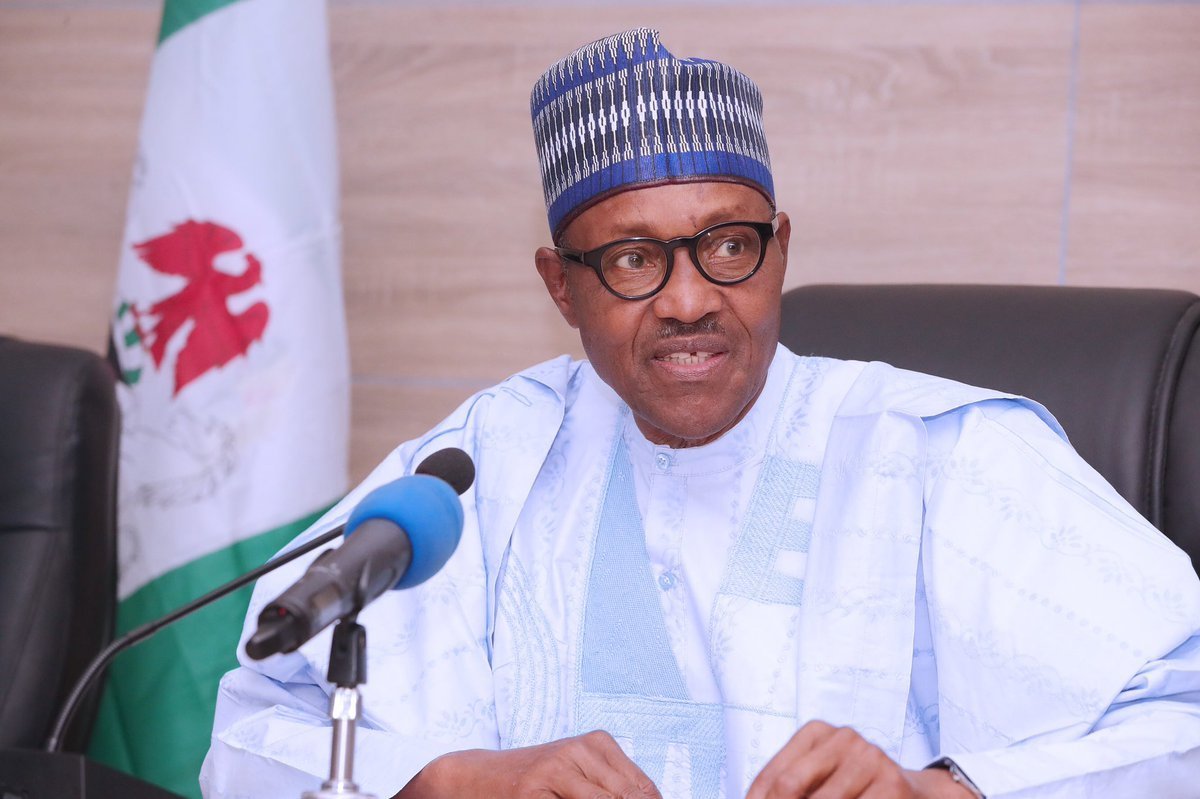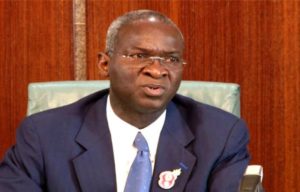Federal roads’ dilemma

Emeka OMEIHE
President Buhari stirred the hornet’s nest when recently he barred state governors from fixing federal roads if they will eventually ask for compensation.
Minister of works, Babatunde Fashola told House of Representatives’ ad hoc committee on abandoned federal government’s projects (works) 1999 till date that the order became necessary because of the humongous amounts of money claimed by governors after repairing such roads.
His account of the actual words of the president was: “Tell them not to fix my roads again if they’re going to claim compensation. If you want to fix it and not ask for compensation, send me what you want to do. But if you want compensation, go and mind your business while I mind my business because I have inherited enough debts”.
If the directive is followed to its letters, states will no longer be allowed to fix federal roads without the approval of the federal government. And even when such approval has been received, whatever monies they spend will not be refunded them. But that is where the problem lies. It is inconceivable that after the necessary approvals have been received for the reconstruction of such roads, state governments will still have to bear the -cost.
The intervention of the states in the reconstruction of federal roads arose due to the serial neglect and outright abandonment of such roads throughout the length and breadth of the country. Even where contracts have been severally awarded for the construction of the roads, the fact on the ground is that most of the roads have remained in very deplorable states. Notwithstanding that some of those roads were provided for in yearly appropriations, there is little or nothing on ground to justify such allocations.
In the face of the decrepit conditions of federal roads and excruciating sufferings and complaints from citizens, some states have had to embark on reconstruction and remedial action to ameliorate the plight of their people. Ordinarily, such governors should be given a pat at the back for rising to the needs of their citizens by filling the gaps created by federal inaction and lethargy. But the situation has not been all that tidy given some challenges thrown up by the activities of some of the governors.
And as evident from the directive of the president, state governors hitherto, jumped into the reconstruction of federal roads without input from the relevant authorities only to submit bills that are considered outlandish. That is the point the federal authorities seem to be making and they are not out of place in this. Even then, there are other challenges bordering on quality and poor job execution that often arise when state governors take up such projects without input from the arm of government with the statutory mandate to superintend over them.
The fix the federal government found itself was illustrated most poignantly by the case of Imo State under its immediate past governor, Rochas Okorocha. He had embarked on the dualization of the Owerri-Orlu-Akokwa federal road linking Anambra State ostensibly to uplift the state of that road. He built two bridges along that highway which the Council for the Regulation of Engineering in Nigeria, (COREN) described as disasters waiting to happen because they were done without engineering designs.
Today, one of the bridges has completely collapsed while the other will soon give way even as the poorly constructed road went into a state of disrepair barely three months that regime wounded up. It is on good authority that the federal government is not willing to pay anything to the state government because of the shoddy job done.
If that is the grouse of the federal government for barring state governors from fixing federal roads, they have a point. But it will mount to throwing away the baby with the bathwater if the directive is executed the way it has been presented. The right approach is to find a common ground between the observations of the federal government and the antics of the state governments such that will still enable willing and seriously minded governors to reconstruct the roads and lighten the burden of their people without losing the funds invested in those projects.

This is especially so because the people stand as ultimate losers when succor neither comes from the federal authorities nor the state governments. That is the uncanny dilemma brought to the fore by the order of the president. The directive is very defective as it will compound the plight of commuters who have been groaning under the yoke of abandoned and dilapidated federal roads that often provide veritable grounds for all manner of criminal activities to thrive.
President Buhari seemed to have inched towards mutual understanding when he requested governors who wished to fix such roads without compensation to write him on what they intend doing. But the president spoilt the game by insisting that those who wish to write him on what they wanted to do should not seek compensation. That is quite improper. It will only lead to counterproductive outcomes. The right approach is for the states to comprehensively and in keeping with extant regulations for the award of contracts to write the federal authorities specifying the job they intend doing with costs attached.
It is then left to the authorities to vet whatever documents they submit with a view to ensuring quality, standards and at reasonable cost. Asking governors not to expect compensation even when the federal government is satisfied with what they intended to do makes no sense at all. That will amount to sentencing a lot of Nigerians to early death in view of the excruciating hardship they experience due to the inability of the federal government to maintain those roads.
But the tepid bureaucracy that left such roads in their current pass is also likely to rear up its ugly head. Letters written to the federal authorities seeking permission for remedial action on such roads may stay months and years without action. When this happens, we will be left with the same situation that led some governors to embark on the reconstruction of the roads without federal approval. So it is really a vicious cycle that only the federal authorities can disentangle through proactive responses and action that will deliver all year round durable roads.
A recent survey on federal roads in the Southeast by this newspaper came out with the verdict that most of the federal roads in that zone have become death traps. A striking case was the Enugu-Awka-Onitsha road for which a sum of N45 billion allocations had been made from 2005 to 2019, yet no work appears to be going on there now even as it is rated the worst federal road in the country. Southeast is not alone in this as many others are equally affected adversely, though in varying degrees.
But more fundamentally, the order by the president has exposed the inherent contradictions in the federal contraption the nation currently operates; a defective system that vested overbearing powers on the central authority. We are contending with the contradictions posed by the reality of the federal government virtually controlling the powers of life and death. That is why it is still in charge of most of the roads in the country even as the conditions of such roads have continued to interrogate their continued retention within the exclusive legislative list.
That is the issue at the heart of agitations for devolution of powers, true federalism and restructuring. The point in these agitations is that the concentration of huge powers on the central authority does make for effective performance, hence the imperative to dilute the power base of the central government to quicken the delivery of public goods and services. The solution lies in divesting the federal authority of the huge powers that seem to confer the status of unitarism on our governance framework.







